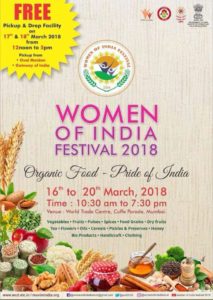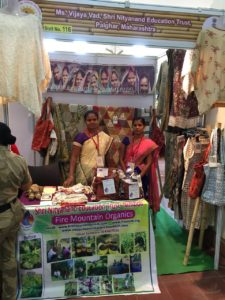Essential Oil Cultivation Project: September 2020
SNET is very excited to launch a new pilot project exploring the cultivation of citronella, geranium, vetiver, lemongrass and mogra. We are very hopeful that these crops can be cultivated for income generation that will improve the lives of our tribal neighbors.
 Hydroponic vetiver cultivation
Hydroponic vetiver cultivation

Oyster Mushroom Growing Project at Fire Mountain
April 2019

We have started a new program of growing organic oyster mushrooms at Fire Mountain. This means our already delicious meals at Fire Mountain now include tasty oyster mushroom dishes! Once we perfect our techniques -- we will engage with local farmers to teach them how to grow these mushrooms and eventually create a new cash crop for everyone involved.
A New School Year Begins
August 2018
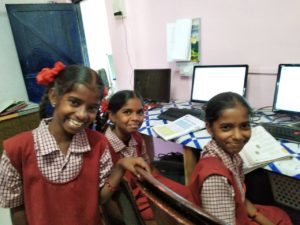
Ease of Cooking for Tribal Women
https://www.tatamotors.com/blog/csr/tata-motors-csr-empowering-women/
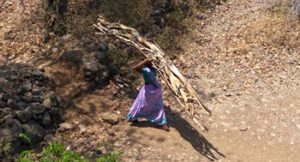
Firewood collection and carrying an overhead load of around 25 kg during transit from local forest to home is one of the most arduous activities for many tribal women in Thane and Palghar districts (of Maharashtra). For an average family of five, women have to make 80-100 such trips annually. In the existing cooking practices involving use of firewood, women typically face following problems: i) Drudgery involved in firewood fetching activity cause health hazards that include neck ache, back ache, calf muscle ache, and fatigue. It is quite tiresome activity for the women who are affected by anaemia, ii) Women spend around 450 work hours annually to fetch firewood. During the firewood fetching period, they can not avail the locally available wage labor activities, iii) Firewood fetching also disturbs child caring activity of the women and iii) smoke generated during cooking cause irritation in eyes, cough and sometimes head ache.
Since, November 2016, Tata Motors under its CSR in partnership with NGO Shree Nityananda Education Trust (SNET) and Dr. Vijay Honkalaskar, PhD from IIT Bombay have disseminated the Twisted Tape Pack (TTP) technology incorporated in the traditional cookstoves to around 8,000 tribal and rural women in six blocks in Thane and Palghar districts. It is estimated that the dissemination work has saved around 16,00,000 women work hours expended in firewood fetching and cooking activity. A qualitative assessment of the utility of the technology carried out on sampling basis reveals perception of women that in addition to reducing the firewood required, this intervention reduces time of cooking, reduces blackening of the palms, reduces irritation of eyes and cough due to the hitherto smoky firing of the cookstoves, lesser attacks of hot gases on face and reduced health expenses.
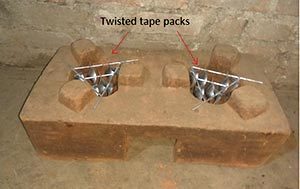
SNET Participates in Women's Organic Expo in Mumbai: March 2018
Fire Mountain Organics is proud to be participating in the "Women of India Festival 2018" Expo organized by the Union Ministry of Women and Child Welfare in New Delhi, co-sponsored by Mahila Aartik Vikas Mahamandal in Maharastra.
Padukas products made by the SNET Women's Workshop launched it's new line of organic quilts, jewelry and clothes. The SNET Men's Workshop launched it's "organic farming in a bag" for patio gardners to benefit from their organic, natural products.
